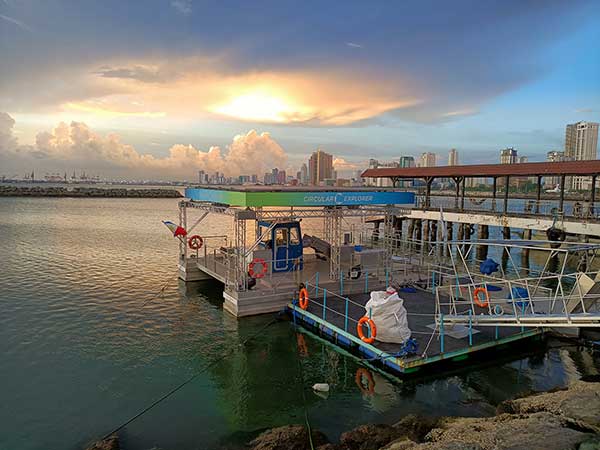
Holcim Philippines, a leading building solutions provider, has called for an accelerated shift towards circularity to reduce waste and conserve natural resources while promoting development.
By rethinking waste as an alternative to virgin materials, Holcim aims to support the country’s environmental and economic goals.
Circularity has significantly enhanced Holcim’s business and environmental performance. In 2023, the company reused over a million tons of waste from industrial and local government partners to produce cement, making it one of the top recyclers in the country. This practice has also led to a reduction in freshwater withdrawals since 2018 through water recycling and improved efficiency.
Holcim is collaborating with stakeholders to promote the reuse of construction demolition materials, which can be repurposed in new building projects without compromising quality.
The company is leveraging its expertise and advanced technology from the Holcim Group, the global leader in sustainable building solutions. In 2023, the Holcim Group recycled nearly 8.4 million tons of construction demolition materials and aims to reach 10 million tons by 2025.
“Advances in technology and design allow us to repurpose construction demolition materials instead of using virgin resources in new structures. This practice is relevant to the Philippines and we are excited to work with partners to accelerate its adoption locally,” stated Holcim Philippines Chief Sustainability Officer Sam Manlosa, Jr.
In addition to practicing circularity, Holcim is actively campaigning to raise awareness of its benefits among the youth, scientific community, and policymakers.
A key initiative in this campaign is the Circular Explorer, a waste collection and research vessel co-developed with the German environmental group One Earth, One Ocean Foundation. This vessel supports the rehabilitation of Manila Bay by collecting waste and conducting research.
The Circular Explorer is equipped with oceanographic sensors and a microplastic collector to aid research by the UP Marine Science Institute. It also supports the Plastics Research Intensive Methods Training Program, which aims to train 80 early-career researchers and faculty members from 50 universities and government agencies across the Philippines.
Project Manager Christine Bellen emphasized the broader impact of circularity: “Circularity is a critical enabler of sustainable development with positive impact from sea to cities. By engaging a variety of stakeholders, we aim to win over allies that can accelerate momentum towards transformation. We are hopeful that the steps we are taking can help shape policies supportive of circularity and mold a new generation more mindful of the environment.”
Holcim’s efforts extend to educational outreach, with initiatives to integrate marine conservation and the principles of circularity into school curriculums. The company has begun discussions with several schools and the Department of Education to utilize the Circular Explorer for educational purposes.
















